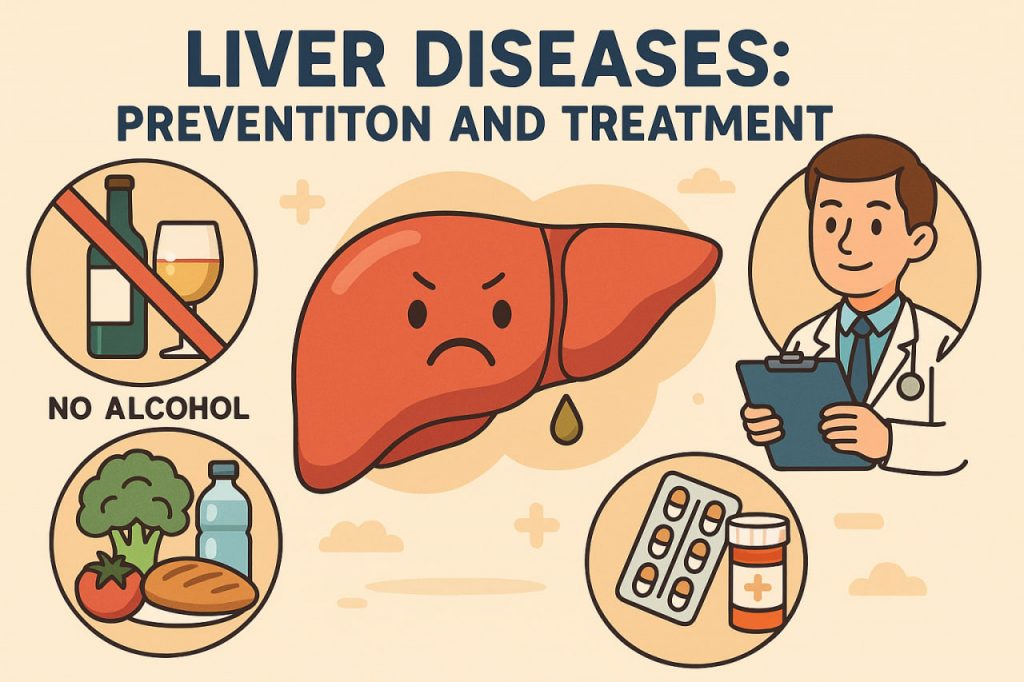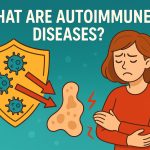The liver is one of the body’s most vital organs, responsible for filtering toxins, producing digestive enzymes, storing nutrients, and supporting the immune system. When the liver becomes damaged, it can lead to serious health conditions that affect the entire body. Early prevention and proper medical care are essential for maintaining liver health.
Common Liver Diseases
Several liver disorders affect people of all ages:
- Hepatitis – inflammation of the liver, commonly caused by viruses (Hepatitis A, B, or C)
- Fatty liver disease – accumulation of fat in liver cells, often linked to obesity or alcohol use
- Cirrhosis – long-term liver damage that leads to scarring and impaired function
- Liver cancer – abnormal cell growth, often developing in people with chronic liver diseases
- Autoimmune hepatitis – when the immune system mistakenly attacks liver cells
Symptoms to Watch For
Many liver diseases progress silently. When symptoms do appear, they may include:
- Fatigue
- Jaundice (yellowing of the skin and eyes)
- Abdominal pain or swelling
- Nausea and loss of appetite
- Dark-colored urine
- Pale or gray stool
Prevention Strategies
Liver disease prevention relies on lifestyle and hygiene:
- Limit alcohol consumption or avoid it altogether
- Maintain a healthy weight through balanced diet and exercise
- Get vaccinated against Hepatitis A and B
- Avoid sharing personal items like razors or needles
- Practice safe sex to prevent viral infections
- Be cautious with medications and supplements that may stress the liver
- Avoid exposure to industrial toxins and contaminated water
Diagnosis and Medical Monitoring
To diagnose liver problems, doctors may use:
- Blood tests to check liver enzyme levels
- Ultrasound or MRI to assess liver size and structure
- Liver biopsy in cases where tissue analysis is needed
Regular monitoring helps track disease progression and adjust treatment accordingly.
Treatment Options
Treatment depends on the type and stage of liver disease. It may include:
- Antiviral medications for hepatitis infections
- Lifestyle changes to reverse early-stage fatty liver
- Immunosuppressive therapy for autoimmune hepatitis
- Surgical interventions or liver transplants in advanced cases
Self-medication is dangerous. Liver treatments must be prescribed and supervised by a healthcare professional.
Glossary
- Liver – an organ responsible for detoxification, metabolism, and digestion
- Hepatitis – inflammation of the liver caused by viral infection or other factors
- Cirrhosis – permanent scarring of the liver from long-term damage
- Jaundice – yellowing of skin or eyes due to liver dysfunction
- Fatty liver – fat buildup in liver cells, which may lead to inflammation
- Liver biopsy – a medical procedure to remove a sample of liver tissue for analysis
- Immunosuppressive therapy – treatment that reduces the activity of the immune system


